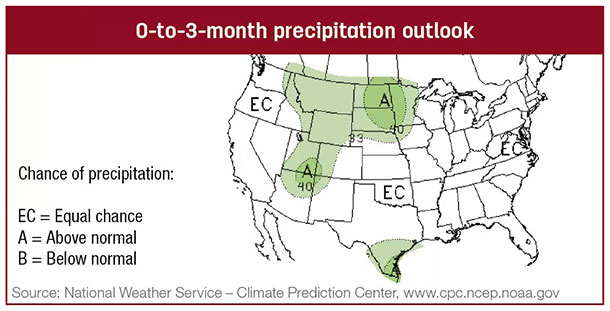Generally, weaning occurs at 6 to 8 months old. However, the best time to wean may vary. If cows are starting to drop below a body condition score of 4, it would be beneficial to go ahead and wean calves a month or two earlier to allow them more time to regain condition before calving again.
However, if cows are in great shape, and there is plenty of grass, weaning could be delayed a month or two.
Even if cows are in good condition, calves should be weaned at least 60 days before the cows are expected to start calving again. This time is needed to allow the mammary gland to recover and let the cow start producing colostrum for the next calf.

Marketing plans may also impact weaning dates. Many preconditioned calf sales require calves be weaned at least 45 days prior to the sale.
While there are numerous techniques to wean calves, many feel fenceline weaning is the best approach. With fenceline weaning, cows are put in one pasture, and calves are put in the next pasture with only a fence separating them. This allows for the cows and calves to see and hear each other, which reduces stress on both groups.
If needed, a strand of electric fence can be attached to the permanent fence to prevent calves from crawling through.
A key to successful fenceline weaning is to separate the cows and calves with as little excitement as possible. The calmer the cows and calves stay during the sorting process, the better. If possible, only sort pairs on the day of weaning; vaccinate and deworm a couple of weeks prior to weaning.
An ideal weaning pasture should be about 5 to 30 acres in size. It should also have good shade along the fenceline; this is especially important on the side of the fence where the calves will be. If temperatures are cool, then shade is not important. Additionally, the water source should be within a few hundred yards of the fence.
Don’t forget to plan grazing and fertilization applications to ensure the weaning pasture contains plenty of high-quality forage at weaning. ![]()

-
Jason Banta
- Associate Professor and Extension Beef Cattle Specialist
- Texas A&M University
- Email Jason Banta









